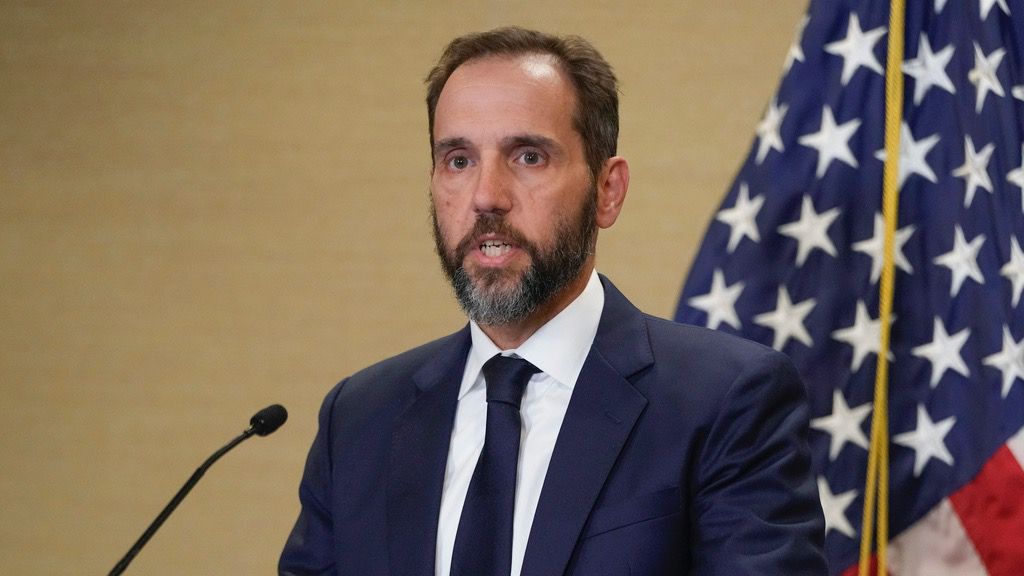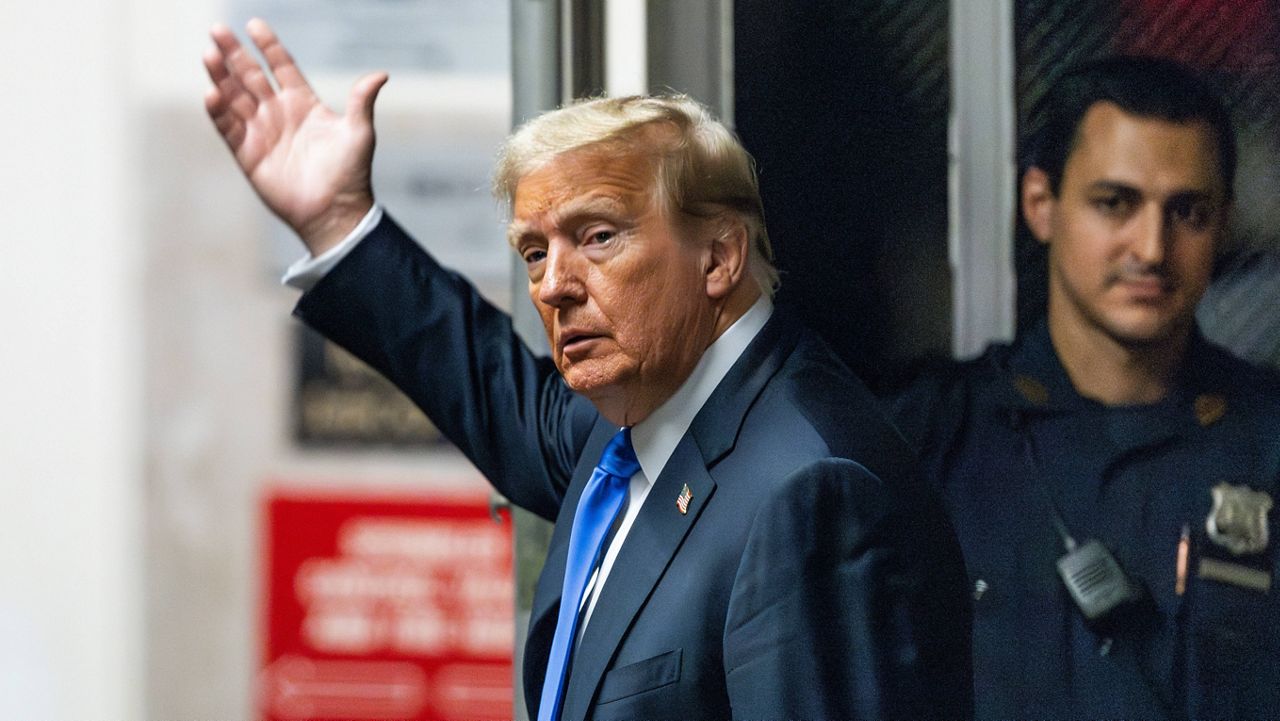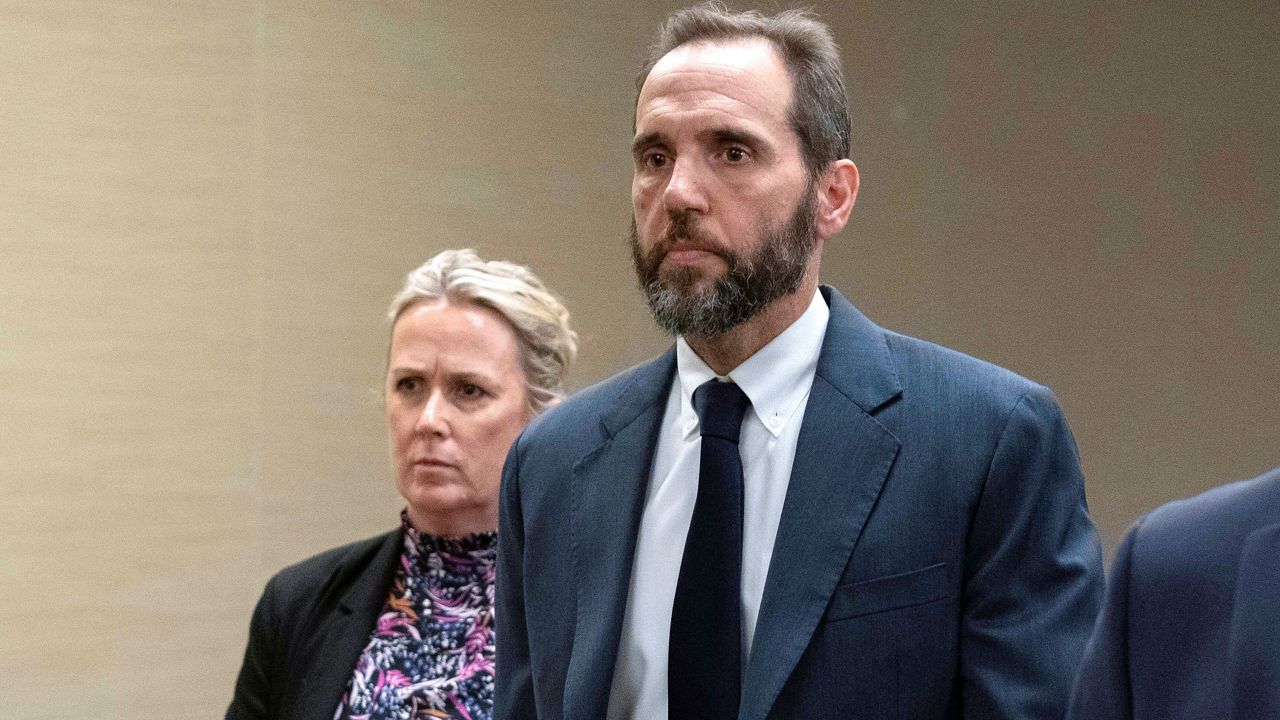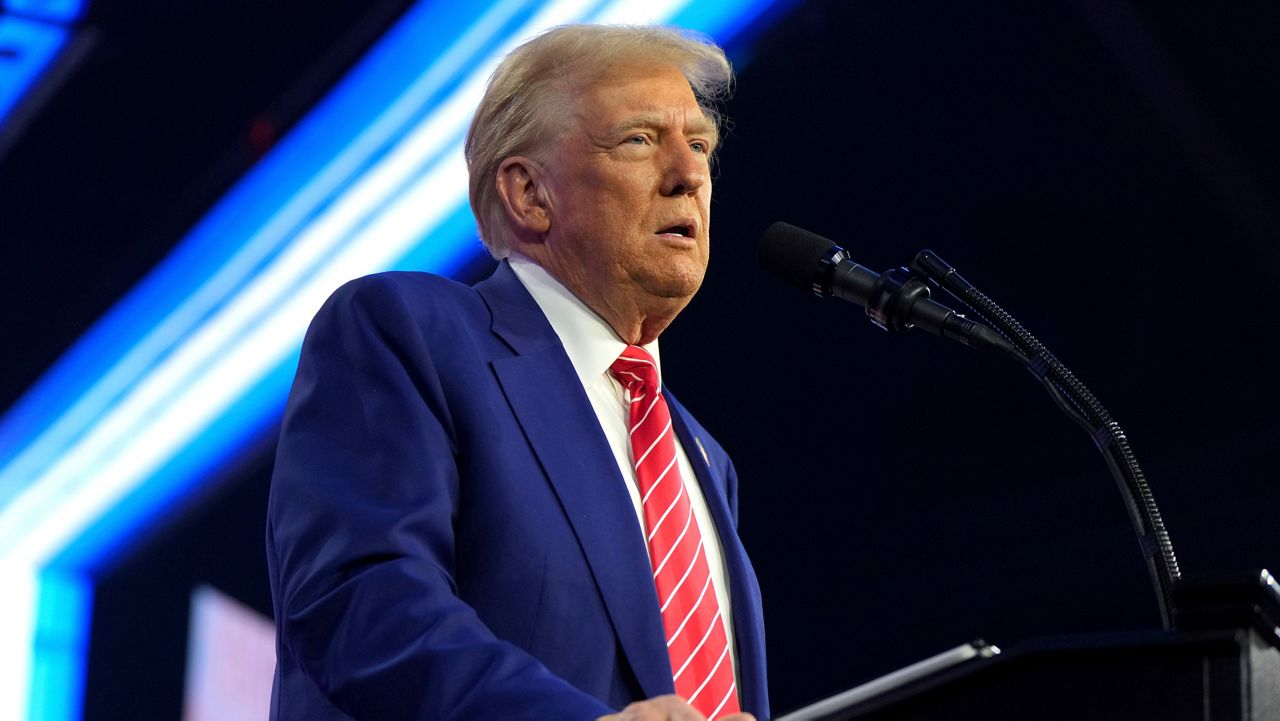A jury in New York unanimously decided that former President Donald Trump must pay $83.3 million in damages to columnist E. Jean Carroll for defaming her in 2019 when he denied that he sexually assaulted her in the 1990s and called her a liar.
The jury said Trump, the current Republican presidential frontrunner, must pay $65 million in punitive damages and $18.3 million in compensatory damages, including $11 million in reputation repair program.
"My advice to you is that you never disclose that you were on this jury," U.S. District Court Judge Lewis Kaplan told the members of the jury after the verdict was read. Trump had already left the building and departed in his motorcade.
Carroll smiled as she left the courtroom, flanked by her attorney, as she got into a vehicle and left the area without speaking to the press.
In a statement, Trump called the ruling "absolutely ridiculous" and vowed to appeal the decision, while also baselessly accusing President Joe Biden, his political rival, of a "witch hunt." But despite the lack of evidence that Biden or anyone in his administration had anything to do with any of the multitude of cases against him, Trump’s line of argument has resonated with his most loyal supporters who view the proceedings with skepticism.
The defamation case, one of many facing Trump as he mounts a third White House bid, presents an extraordinary set of circumstances for the Republican frontrunner who has already cruised to victory in the Iowa caucuses and New Hampshire primary.
In New York, Trump faces a civil fraud trial for alleged hush money payments made to an adult film star during the 2016 presidential election. He faces two trials, one in federal court in Washington and one in Fulton County, Georgia, related to alleged attempts to overturn the results of the 2020 presidential election. Trump also faces a case in federal court in Florida related to the alleged mishandling of classified documents at his Mar-a-Lago estate.
In May, a different jury awarded Carroll $5 million. It found Trump not liable for rape, but responsible for sexually abusing Carroll and then defaming her by claiming she made it up. He is appealing that award.
Trump skipped the first trial. He later expressed regret for not attending and insisted on testifying in the second trial, though the judge limited what he could say, ruling he had missed his chance to argue that he was innocent. He spent only a few minutes on the witness stand Thursday, during which he denied attacking Carroll, then left court grumbling “this is not America.”
This new jury was only asked how much Trump, 77, should pay Carroll, 80, for two statements he made as president when he answered reporters’ questions after excerpts of Carroll’s memoir were published in a magazine — damages that couldn’t be decided earlier because of legal appeals. Jurors were not asked to re-decide the issue of whether the sex attack actually happened.
Carroll’s attorneys had requested $24 million in compensatory damages and “an unusually high punitive award.”
Her lawyer, Roberta Kaplan, urged jurors in her closing argument Friday to punish Trump enough that he would stop a steady stream of public statements smearing Carroll as a liar and a “whack job.”
Trump shook his head vigorously as Kaplan spoke, then suddenly stood and walked out, taking Secret Service agents with him. His exit came only minutes after the judge, without the jury present, threatened to send Trump attorney Alina Habba to jail for continuing to talk when he told her she was finished.
“You are on the verge of spending some time in the lockup. Now sit down,” the judge told Habba, who immediately complied.
Carroll testified early in the trial that Trump’s public statements had led to death threats.
“He shattered my reputation,” she said. “I am here to get my reputation back and to stop him from telling lies about me.”
She said she’d had an electronic fence installed around the cabin in upstate New York where she lives, warned neighbors of the threats and bought bullets for a gun she keeps by her bed.
“Previously, I was known as simply as a journalist and had a column, and now I’m known as the liar, the fraud, and the whack job,” Carroll testified.
Trump’s lawyer, Habba, told jurors that Carroll had been enriched by her accusations against Trump and achieved fame she had craved. She said no damages were warranted.
To support Carroll’s request for millions in damages, Northwestern University sociologist Ashlee Humphreys told the jury that Trump’s 2019 statements had caused between $7.2 million and $12.1 million in harm to Carroll’s reputation.
When Trump finally testified, Kaplan gave him little room to maneuver, because Trump could not be permitted to try to revive issues settled in the first trial.
“It is a very well-established legal principle in this country that prevents do-overs by disappointed litigants,” Kaplan said.
“He lost it and he is bound. And the jury will be instructed that, regardless of what he says in court here today, he did it, as far as they’re concerned. That is the law,” Kaplan said shortly before Trump testified.
After he swore to tell the truth, Trump was asked if he stood by a deposition in which he called Carroll a “liar” and a “whack job.” He answered: “100 percent. Yes.”
Asked if he denied the allegation because Carroll made an accusation, he responded: “That’s exactly right. She said something, I consider it a false accusation.” Asked if he ever instructed anyone to hurt Carroll, he said: “No. I just wanted to defend myself, my family, and frankly, the presidency.”
The judge ordered the jury to disregard the “false accusation” comment and everything Trump said after “No” to the last question.
Earlier in the trial, Trump tested the judge’s tolerance. When he complained to his lawyers about a “witch hunt” and a “con job” within earshot of jurors, Kaplan threatened to eject him from the courtroom if it happened again. “I would love it,” Trump said. Later that day, Trump told a news conference Kaplan was a “nasty judge.”









